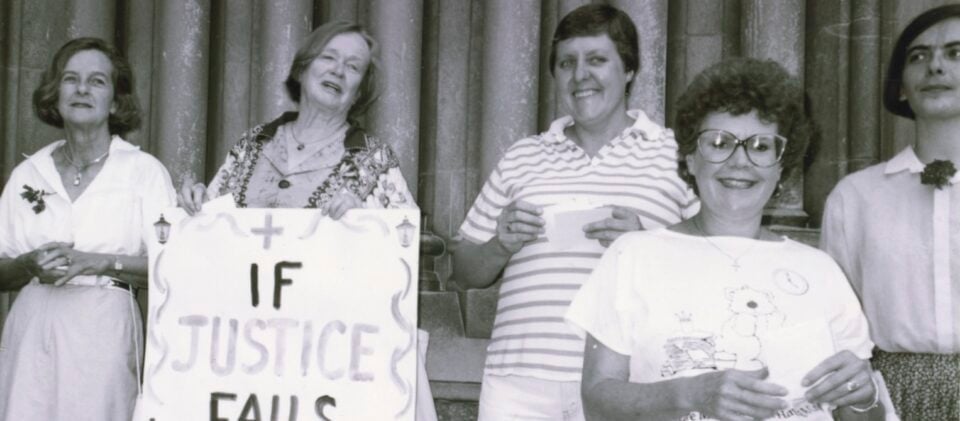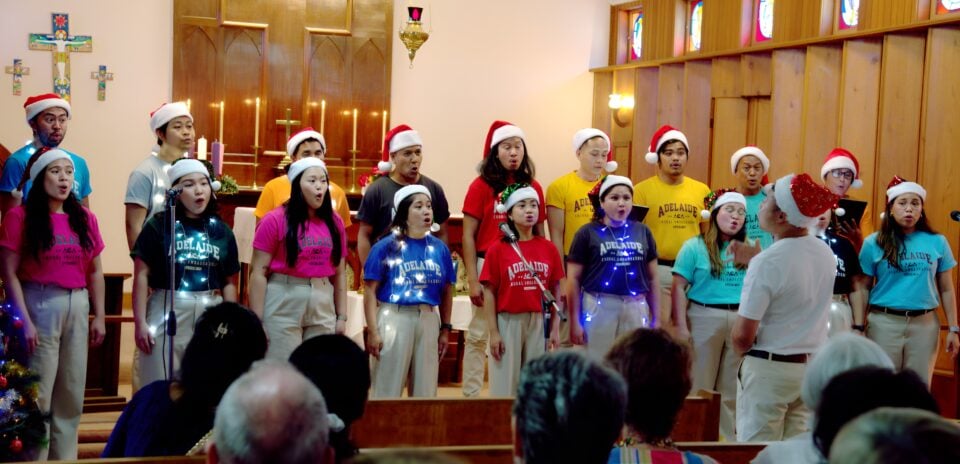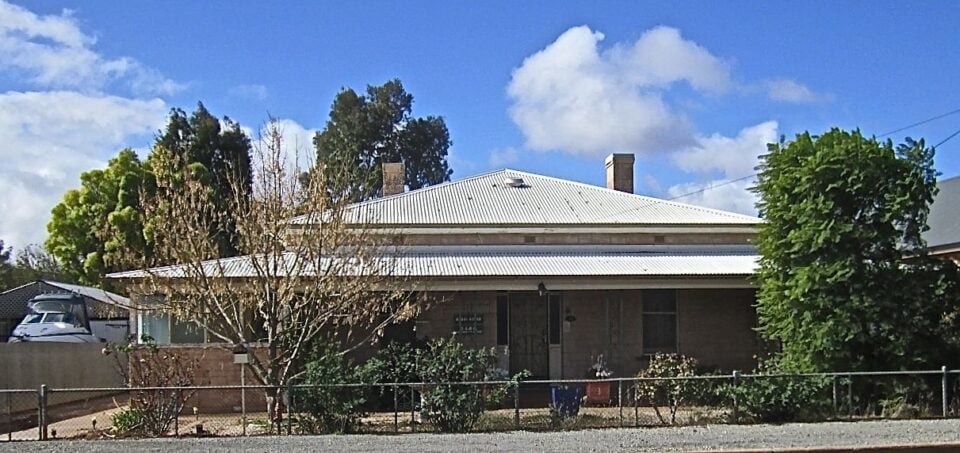International Women’s Day this year is Friday 8 March, a global day celebrating the social, economic, cultural, and political achievements of women. As we count down towards it, we celebrate the service and contribution of Anglican women to our community here in South Australia over the years.
You are also invited to celebrate International Women’s Day with a morning tea organised by the Adelaide Diocese and the Mother’s Union at St Catherine’s Anglican Church, Elizabeth Downs at 10:30am Friday 8 March. Details here
Lady Victoria Buxton
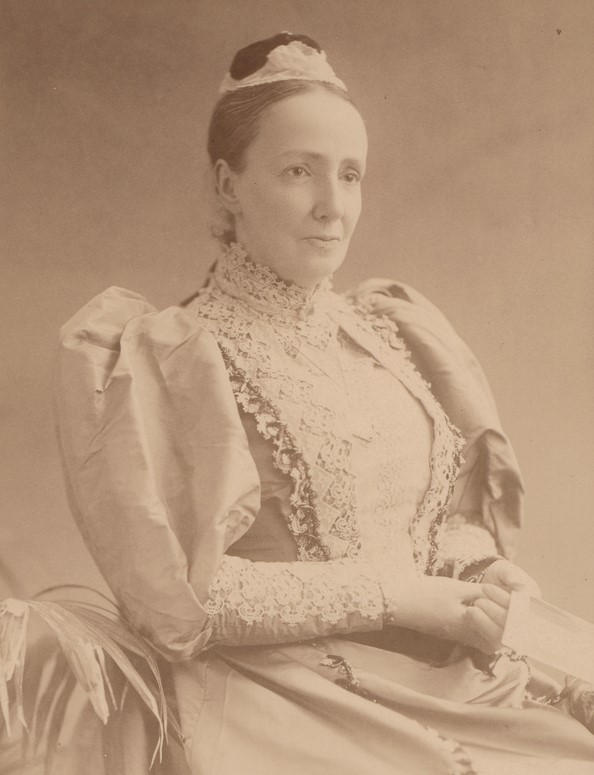
Lady Victoria Buxton (1839-1916) was born Victoria Noel in 1839, the daughter of the Earl of Gainsborough. She grew up in Rutland and Maidstone in England, in the heart of a family with a deeply evangelical faith.
Her marriage, aged 23, to Sir Thomas Fowell Buxton, a British politician and peer, produced 13 children (of whom 10 survived) and so Lady Victoria had a very busy life, both at home and also helping her husband’s political career and engaging in a wide range of social and charitable activities.
She was known as a wonderful kind and good-natured person. Sir Thomas shared her evangelical background and convictions, being descended from a family which had played an important part in the anti-slavery movement of the 18th and 19th centuries. The couple continued in their shared family tradition of evangelical faith and commitment to social justice.
When Sir Thomas was appointed the Governor of South Australia in 1895, they made the long journey here. Lady Victoria’s poor health, marred by osteoarthritis, did not stop her from becoming closely engaged in the Adelaide community, forming close friendships and also a deep involvement in the Diocese of Adelaide.
Among her initiatives were the foundation of the Lady Victoria Buxton Girls’ Club to provide support, encourage and facilities for working-class girls and young women, and the creation of a well known and very successful community cookbook, the Kookaburra Cookery Book, to raise money for the Club’s activities.
She was closely involved in the establishment of the Mothers’ Union in South Australia, and when the first president, her close friend Dorothy Harmer (wife of Bishop Harmer) returned to the UK, Lady Victoria took on the presidency. She worked for the YWCA and raised awareness of church missions, perhaps particularly the River Murray mission, which was at that time conducted via paddlesteamer.
Premier Kingston, at first an impassioned opponent of the Buxtons, was entirely won over by their kindness, courtesy and genuine involvement in the life of SA, declaring them to be “the most genial, sociable and common-sense family who have ever inhabited the Adelaide vice-regal mansion”.
Lady Victoria remembered with “real pleasure”, “our Garden Parties for State school-teachers, for the police and their wives, the hospital nurses, the market-gardeners and their families … [and] the Anglican Sunday-School teachers”. She was a tireless worker on behalf of the church and on behalf of the community.
Lady Victoria’s time in South Australia was sadly cut short by her ill health, as she had to return to England early, but the family retained their ties to SA, and to the Diocese of Adelaide in particular, through their daughter’s marriage to the Reverend Bertram Hawker. Their descendants still live here today.
Joy MacLennan OBE
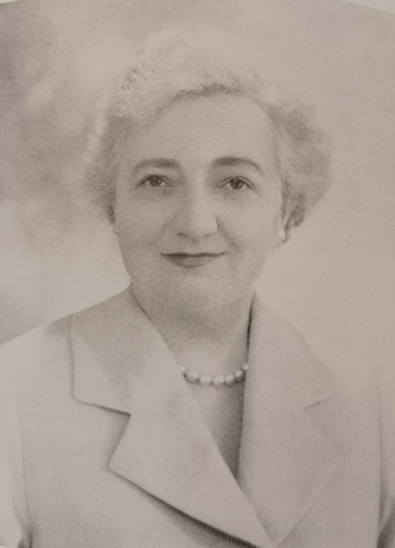
In the late 1930s, some in the Anglican Church began to argue that social welfare, especially for marginalised families, should be delivered in a more unified manner than by a hotchpotch of associations and committees. These arguments, coupled with the emergence of professional social workers trained at the University of Adelaide, prompted the Anglican Bishop of Adelaide to work towards the setting up of the Church of England Social Welfare Bureau and Committee.
Flora Joy MacLennan (“Joy”) studied theology and she graduated from the Australian College of Theology with the Associate of Theology in 1935. However, she needed to support her mother so did social work instead of pursuing a religious calling. Joy was the founding social worker in SA with the Commonwealth Department of Social Services.
In 1947, she was persuaded to join The Social Welfare Bureau and for many years was the sole social worker, undertaking case work with people referred to her from many different sources in Adelaide.
Eventually funds were found to employ two other part time social workers and between them, and a succession of social work students on short- and long-term placements, they saw an ever-burgeoning number of people.
Somehow Joy also found time to do a program of talks to parishes and other groups to raise consciousness of, and funds, for the work she was doing.
In addition, she made herself available to existing Anglican care homes, orphanages, and institutions to offer social work support. In 1961 Joy was appointed as Director of the Bureau of Social Welfare, a position she held until 1975. In 1973 Joy travelled to England on Long Service Leave and contacted a wide variety of agencies in England and Scandinavia about current practices and trends in caring for children.
It was on this trip that she concluded that orphanages and cottage homes had failed and that family fostering was where the future lay. She was awarded an OBE in 1963 for services to social welfare in SA. Joy was a lifelong parishioner of the Anglican Church of St Aidan’s Payneham.
St Columba’s College (A joint Anglican and Catholic College in Andrews Farm, SA) has commemorated Joy’s life and service by naming one of its Houses after her and as reflected in their motto “Believe And Achieve”.
Irene Jeffreys
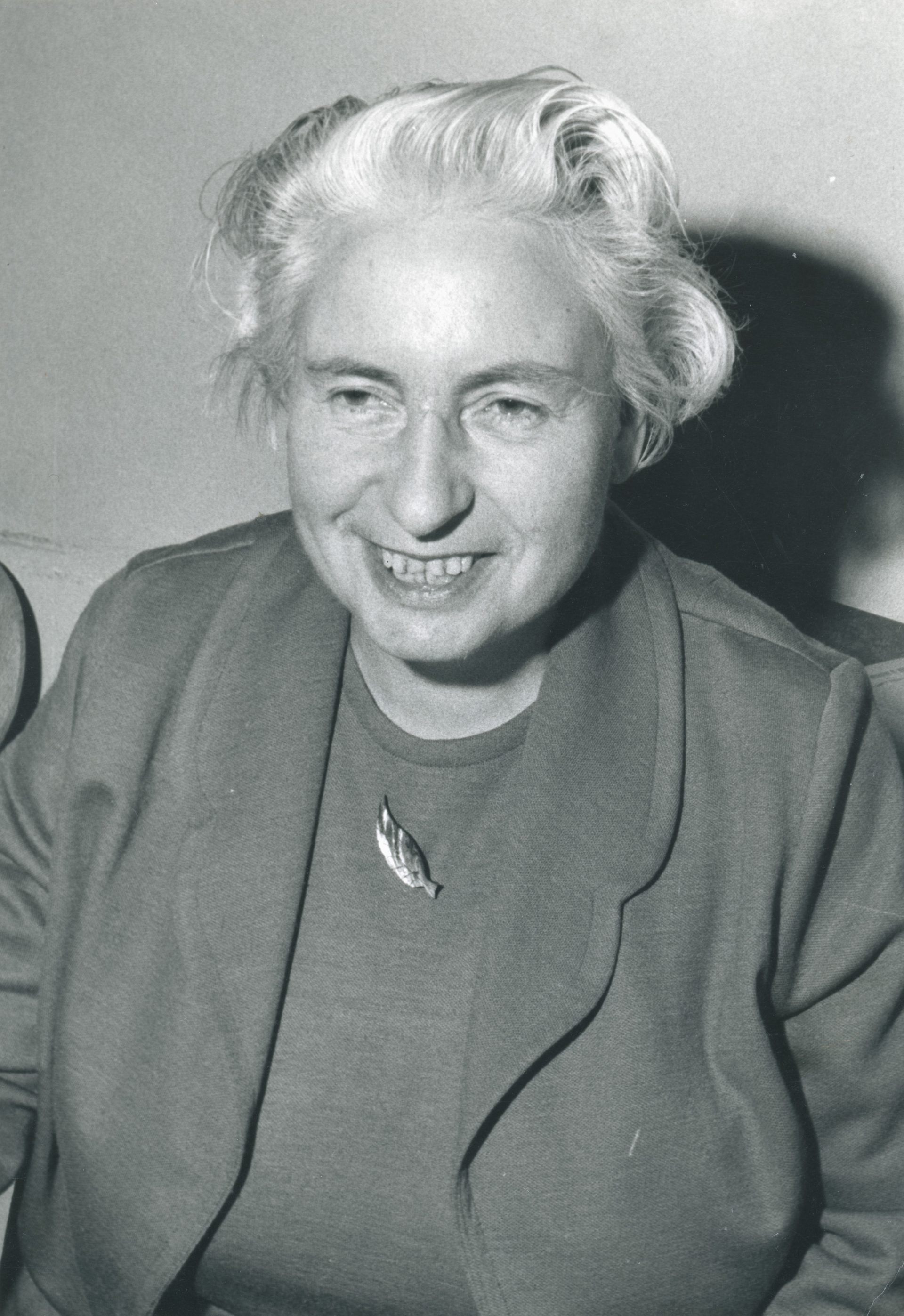
Irene (“Rene”) Jeffreys (1913-2004) was the only child of a London taxi driver, whose family migrated to South Australia when she was a child. A clever girl who grew into a formidable young woman, she attended the Adelaide Technical School until the age of 16. Then she began paid work, attending Stott’s Business College in the evenings and achieving her Intermediate Certificate in Accountancy by the age of 18. She later became the first woman in South Australia to qualify as a Chartered Accountant. Finding it hard to break into a male-dominated industry, she ran her own accounting business from 1946 until her retirement in 1984.
Throughout her life, Rene was deeply involved in her church parish of St Bartholomew’s Norwood, teaching Sunday School for over 30 years, at different times also playing the piano, editing the parish newsletter and acting as a member of every conceivable committee and board.
She also showed a serious commitment to church missionary work. Her involvement with the Church Missionary Society stretched over the course of more than sixty years. In 1939 she presented an eminently practical paper at the CMS Summer School entitled “What Can I Do in My Parish for Church Missionary Work?” In the 1950s and 1960s she periodically toured the CMS mission fields, visiting missionary workers and becoming in the process a sought-after speaker both overseas and at home.
Equally as deep were her ties to the Cottages Homes for the Elderly (for which she was appointed secretary in 1947), Farr House and the YWCA. Rene was generous with her time and with her administration and financial skills, serving as treasurer for many organisations. She was also Adelaide’s first female lay reader and first female lay preacher.
In 1962 she became the first ever female synod representative on the General Synod. A tiny woman in a large hat, she stood out in the photograph: “One hundred and ninety two men and little old me!”. As an elected member of the Anglican Consultative Council from 1968 (the first woman, of course), she represented the Australian church on the world stage in the 1960s and 1970s.
In 1978 she was awarded an OBE for her service to women, to children and to the church. In fact, her service to women and the church was in some ways only just beginning.
Her lifetime achievements in administration and advocacy, and her intimate knowledge of the Bible, stood her in good stead as she became involved in the debates around the ordination of women to the priesthood.
In 1977 she seconded a historic motion carried by the General Synod that there was no fundamental theological impediment to the ordination of women.
About Paul’s teaching on union with Christ, Rene said to the Synod, “women also can have Christ in them and can express and be the hope of His Glory; surely then, once again we must together share with the males the expression of that Glory, the working out of what it means to be in Christ … In Christ is a new creation, the old previous spiritual and moral condition has passed away, the fresh and new has come, let us see this matter in that vision, fresh in the new further glories of Christ to be found as we work together and we show the world the true relationship of men and women is in Christ and in Him there is no difference.”
A foundation member of the Movement for the Ordination of Women, Rene supported, encouraged and advocated for the ordination of women for at least 15 years until the first women were ordained priest in the Diocese of Adelaide. Her strong feminist convictions propelled her extraordinary lifetime of service to God as well as to women, children, the community and the church. Her funeral at St Bart’s was a celebration of a life lived in the service of others and to the very fullest.
Visit our page each day this week as we add profiles the women who helped the Adelaide Anglican Diocese flourish.



